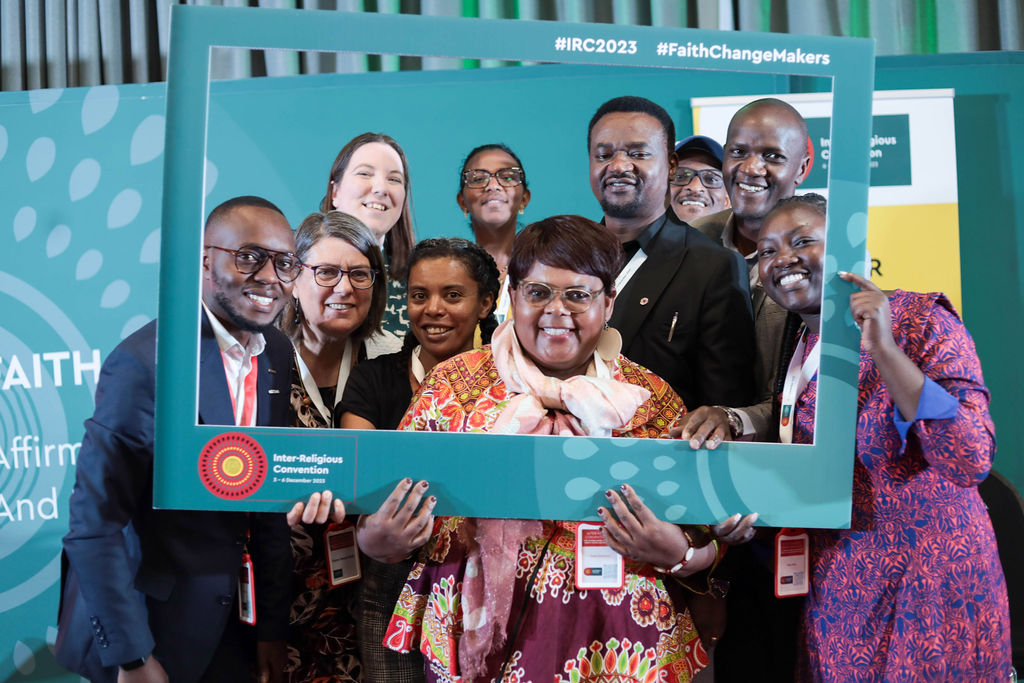Reflecting on the faith methodologies for gender justice, ACT forum representatives from Uganda, Ethiopia, Tanzania, and Zimbabwe shared their experiences working as faith-based organizations.
In Ethiopia, the forum ‘s methodology looked at theological reflections, through two major lenses of the Ethiopian Orthodox as well as Evangelical churches, who are also part of the ACT forum. Through the theological reflections on gender justice, they developed resources for integrating gender into the curriculum, especially in parishes as well as in theological colleges. Read more here.
“One of the added value working with faith actors in theological reflections for gender justice is how we can get to communities and influence, through the church structures,” says Million Shiferaw, NCA and ACT Ethiopia forum member.
In Uganda, addressing transformative masculinities is one of the key areas that the forum engages in gender justice work, countering cultural norms through media campaigns and working with male faith leaders as champions for gender justice.
“There is a need to appreciate transformative masculinities as one of the key pillars in ensuring human rights protected at the community level and affirming human dignity and justice for all” Vincent Mayega, RACOBAO, representing ACT Uganda forum.
In the Zimbabwe forum, one of the approaches, working with the ACT Zimbabwe forum’s gender community of practice, was on integrating gender in peacebuilding work. During the 2023 general elections in Zimbabwe, the forum members monitored gender-based violence (GBV) and provided referral pathways. In addition, the forum has been active in the 16 days of activism campaigns, working with several other actors.
“Working with faith actors in Zimbabwe has enabled us to reach out to communities and as Ecumenical Church Leadership Forum (ECLF), use the Gender Transformative Approach (GTA) which influences the change of attitudes, behavior and norms that are at the very core of unequal power relations and gender inequality. The approach has been key to addressing the root causes of gender-based violence,” says Pamhidzai Thaka from ACT Zimbabwe forum and ECLF
In advancing reproductive justice, Dr. Paul Mmbando brought the perspective on how the voices of faith leaders are unique in bringing a transformative impact on reproductive justice. Church hospitals, including the Evangelical Lutheran Church in Tanzania (ELCT), provide access to information and reproductive justice services. Dr. Paul ,Who is also a medical practitioner noted the added value of working with faith actors in Tanzania, as one of the effective advocacy avenues in reaching communities, as well as in influencing policymaking.
“In our work, we work a lot through inter-faith approach and we have made great strides, when faith leaders speak, they bear with them a unique language,” says Dr.Paul
ACT Alliance’s global gender justice program is of great essence in bringing together members through conversatorio, learning together as well as working as ACT Alliance at local context on gender justuce work.
“One of the major work for the global gender justice program has been to address gender inequalities that are considered taboo or difficult by engaging members and other stakeholders in dialogues to listen to one another and working at local context.” says Elaine, ACT’s Global Gender justice programme manager.
Co-hosted by ACT Alliance and other partners , the inter-religious convention brought together over 160 faith leaders and activists from more than 25 countries globally to deliberate on 3 main thematic areas on gender justice , justice and peace as well as freedom of religion and belief and inclusion.
The three day convention, from 3rd to 6th December brought a unified voice of faith as change makers, in affirming human dignity, justice and freedom for all.
